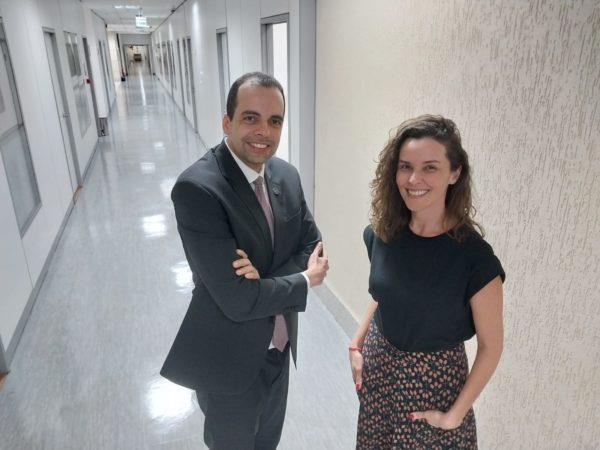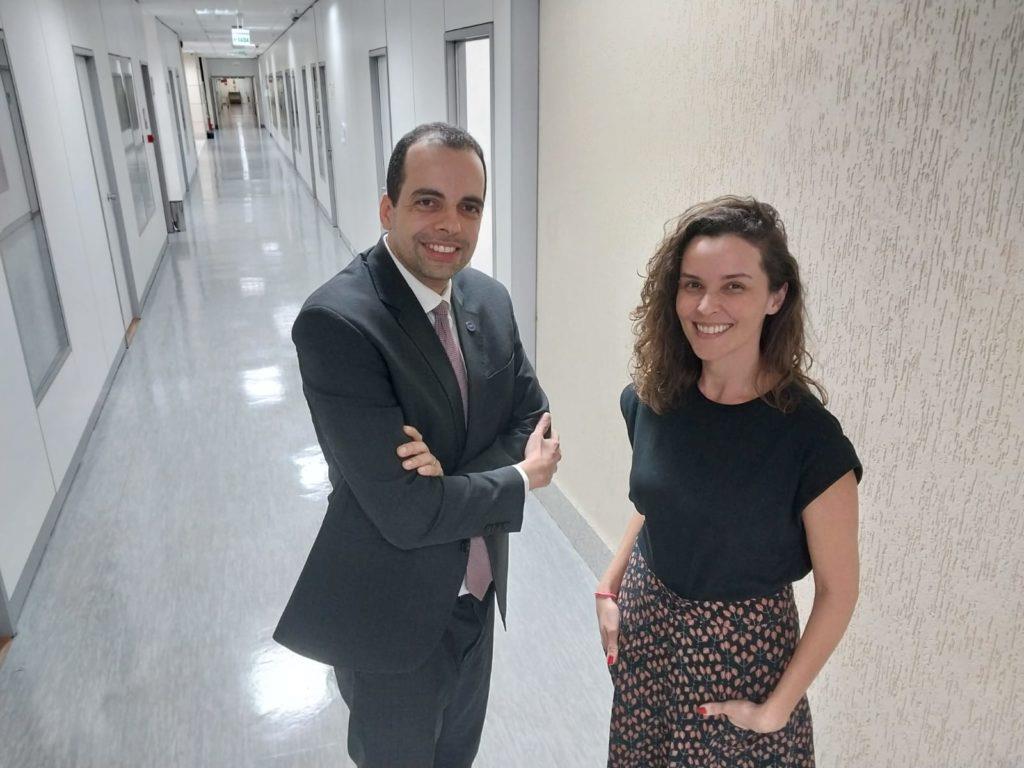(MENAFN- Brazil-Arab News Agency (ANBA))

Brasília – After shortening the time export process time from thirteen to less than five days, the Brazilian government has worked to speed up the import procedures as well, from nine to five days.
In an exclusive interview with ANBA, the Ministry of Development, Industry, Trade and Services Foreign Trade Operations director Renato Agostinho and Export Promotion, Export Culture, and Trade Facilitation director Janaína Batista Silva talked about the current modernization stage of the foreign trade procedures in Brazil. Pictured above, the two directors.
The abovementioned time shortening refers to the bureaucratic and logistics processes required for export and import in Brazil like customs procedures and health permits, which can differ from product to product. One of the new features is that the clearance of air cargo will be shortened to four days, cutting the timeframe by approximately 90%, said Silva.
These procedures take place within the Sigle Window for Foreign Trade that came as an innovative, originally Brazilian technological solution to fast-track trade. Agostinho and Silva said many countries approach Brazil to learn more about the system, which was developed by the Federal Revenue of Brazil and the Secretariat of Foreign Trade (SECEX), which is affiliated to the Ministry of Development, Industry, Trade and Services and where both executives work at.
“The Brazilian government has moved towards facilitating trade and cutting the red tape, driven by the international agreements Brazil is part of like the Trade Facilitation Agreement of the World Trade Organization (WTO) but also the WCO Revised Kyoto Convention that addresses customs procedures,” she said. The agreement provides for the use of single windows to facilitate trade. Agostinho pointed out that a domestic effort to modernize processes had been undertook even before that, though.
The Sigle Window for Foreign Trade was introduced as part of the Brazilian commitment to facilitate trade.“It's more than a system – it's a foreign trade de-bureaucratization initiative to redesign export, import and customs procedures, aiming to make them more fluid, and cut time and costs,” said Agostinho.
The work started by mapping out all nineteen agencies involved in such procedures, from ministries to public entities like the Brazilian environment protection agency Ibama and health regulator Anvisa, and a requirement that they digitize they procedures and switch to the Single Window. The previous sequential format, where you had to get one license first before getting another, gave way to the possibility of simultaneously applying to them all.
The work started in 2014. The formal deadline for these agencies to have all of their procedures within the system is next September. As for imports, the deadline is next March. But paper has already been eliminated in a previous phase and isn't present any longer in any operation, according to the executives.
New measures
A measure taken recently to speed up the procedures within the single window was the launch of the Flex License. Through this initiative, a permit can be used for more than one import or export, without the need for it to be issued at every operation, thus cutting time and costs for companies.
Another feature of the single window was the introduction of the Classif system, which uses artificial intelligence to assist foreign trade operators to find the correct classification or Mercosur Common Nomenclature (NCM) of a certain product. The classification is done based on physical and chemical characteristics of the products that people don't usually recognize.
The mapping out of the whole export and import proceudres identified bottlenecks and their root causes together with the private sector.“Addressing issues, bringing more rationality, efficiency, integration between agencies,” said Agostinho, highlighting the role played by Serpro, a state company involved in information technology.
Brazil on the lead
Silva points out that Brazil is a pioneer in implementing a single window for foreign trade as the Siscomex system was created in Brazil for being a foreign trade single window back in the early 1990s.“Of course, it had some technological limitations and there wasn't a guideline that it should be a single window system,” she caveats. Other developments took place at the time, but the idea of a unified window system was resumed later.
Silva believes that the great asset of modernization is the efficiency gain.“Efficiency for both the private sector, that can have more foreseeability, be able to plan and face less costs, and the public administration. For us, it isn't interest for us being an Achilles' heel – we want the operation to be fluid, to happen in the best way it can, without circumventing the necessary controls,” she says.
Ultimately, it's the country that benefits from making its export more efficient, gaining time and cutting costs, thus competing at a better level with its international competitors.
Translated by Guilherme Miranda
Isaura Daniel/ANBA
The post brazil speeds up import procedures appeared first on agência de notícias brasil-árabe .

.jpg)



















Comments
No comment